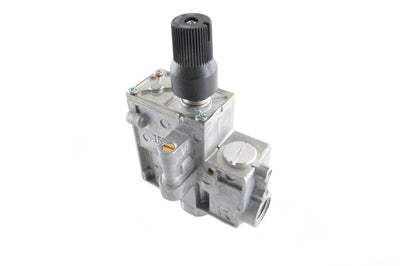Why Does My Electric Fireplace Smell Like Fish Common Causes And Solutions?
Why Does My Electric Fireplace Smell Like Fish? Common Causes and Solutions
Have you noticed a fishy smell coming from your electric fireplace? This issue often arises due to electrical problems or dust buildup. Our article will help you identify the source and provide solutions to fix it.
Keep reading for simple steps to eliminate that unpleasant odor.
Key Takeaways
-
Electrical Component Overheating:
Electric fireplaces often smell fishy due to overheated electrical parts. This overheating can cause melting plastic or arcing, creating distinct odors. -
Dust Accumulation:
Dust and debris build-up inside the fireplace can lead to a burning smell. Regular cleaning and vacuuming help prevent dust from causing unpleasant odors. -
Manufacturing Residue:
Leftover chemicals and lubricants from manufacturing processes may emit fishy smells when exposed to heat over time. -
Routine Maintenance Tips:
Unplugging the unit before cleaning, checking for frayed cords, and inspecting heating elements are essential steps in maintenance. -
Professional Assistance:
Hiring an electrician ensures all components function correctly and safely, helping eliminate persistent odors and preventing potential hazards.
Primary Causes of Fishy Odor

Electric fireplaces can emit a fishy smell due to overheating of electrical components. Dust buildup inside the unit can also cause this unpleasant odor.
Overheating of Electrical Components.
Overheating of electrical components often causes a fishy smell in electric fireplaces. This happens because wiring, circuits, and other parts get too hot. Overloaded circuits or faulty electrical installation can lead to overheating.
The heat may cause melting plastic or arcing, which gives off a distinct odor.
Using extension cords or power strips can worsen the problem by drawing more current than the system can handle. A charred outlet from excessive heating is another sign of an issue that needs immediate attention.
Electrical shorts might also trigger overheating problems, posing serious fire hazards if left unchecked.
Accumulation of Dust and Debris
Accumulation of dust and debris in an electric fireplace can cause a fishy smell. Dust collects on electrical wiring and components. This build-up increases the risk of overheating, which can produce a burning smell similar to that of burning plastic.
Regular vacuuming around your fireplace helps prevent this issue.
Dust is often the culprit behind mysterious odors in electric fireplaces.
Using portable appliance testing (PAT) ensures all parts function safely. Fire suppression systems should also be checked regularly for dust accumulation. Routine cleaning and maintenance keep these issues at bay while extending the lifespan of your unit.
- Residue from Manufacturing Processes
Residue from Manufacturing Processes
Residue from the manufacturing process can produce a fishy smell in electric fireplaces. This residue sometimes includes leftover chemicals and lubricants used during production. Over time, heat from the electric components can cause these substances to emit unpleasant odors.
Electrical fire risks could increase if this residue builds up and isn't cleaned properly. Therefore, inspecting new electric fireplaces for any signs of such residues is crucial. Using a qualified electrician to assess potential issues ensures safety and helps eliminate unwanted smells from your fireplace.
Effective Solutions to Eliminate Fishy Smell

Routine cleaning helps keep your electric fireplace fresh. Also, replace any broken parts to avoid potential issues.
Routine Cleaning and Maintenance
Routine cleaning and maintenance can help keep your electric fireplace in great condition. Follow these steps to eliminate any fishy smell and ensure safe operation.
-
Unplug the Fireplace
Turn off the unit and unplug it from the wall socket. This helps prevent any electrical accidents while you clean. -
Dust the Exterior
Use a soft cloth to dust the outer surfaces. Pay extra attention to vents and grills where dust can accumulate. -
Clean the Interior
Open the access panel and gently remove any debris inside using a vacuum cleaner with a brush attachment. Make sure no dirt is left around electrical components. -
Inspect for Charred Outlets
Check all outlets and plugs for signs of burning or charring. Anything unusual may indicate overheating, so call an electrician if you see damage. -
Check Filters and Fans
Some models have filters or fans that need periodic cleaning. Refer to your manual, remove these components, clean them, then put them back securely. -
Examine Cords and Plugs
Look at power cords carefully for any fraying or wear-and-tear that could cause trouble later on. -
Test Circuit Breakers
Make sure circuit breakers linked to your fireplace are functioning correctly. Flip them on and off to test their response time. -
Use Surge Protectors
Plug the fireplace into surge protectors rather than directly into wall sockets to avoid power fluctuations causing electrical faults. -
Schedule PAT Testing
Portable Appliance Testing (PAT) ensures your device works safely without posing risks of fire damage due to faulty wiring or components. -
Replace Faulty Parts Immediately
Swap out defective parts like fuses as soon as you find issues to ensure smooth operation without strange smells. -
Call Professional Electricians
Get professionals involved if you can't identify or fix persistent smells yourself, ensuring everything is up-to-code by local postal codes standards.
These steps will help keep your electric fireplace running smoothly without unpleasant odors like fishy smells from sewer gas or other causes.
Inspection and Replacement of Faulty Parts
Electric fireplaces can emit a fishy smell if certain parts are faulty. Inspection and replacement of these parts are crucial to eliminate the odor.
-
Check the Electrical Components:
- Inspect wires and fuses for any signs of wear or damage.
- Look for any discoloration, which can indicate overheating.
- Ensure all connections are tight and secure.
-
Examine the Heating Element:
- Turn off the fireplace and unplug it from the breaker box.
- Open the unit carefully and locate the heating element.
- Check for cracks, fraying, or other signs of damage.
-
Inspect the Fan Motor:
- Listen for unusual noises when the fan operates.
- Remove any debris or dust buildup around the motor.
- Replace damaged motors with new ones to avoid further issues.
-
Assess Control Panels:
- Test buttons and switches to ensure they work correctly.
- Look for burnt marks or melted plastic around components.
- Replace malfunctioning control panels to restore functionality.
-
Evaluate Power Cords:
- Examine cords for frays, cuts, or exposed wires.
- Avoid using damaged cords as they pose a fire risk.
- Purchase high-quality replacements if necessary.
-
Consider Professional Assessment:
- Hire certified electricians to conduct thorough checks on electrical issues.
- Ensure professionals inspect creosote buildup in chimneys linked to traditional fireplaces nearby.
-
Replace Faulty Parts Immediately:
- Order quality replacement parts from trusted brands like Dimplex Electric Fireplaces or Modern Flames Electric Fireplaces.
Professional Assessment for Electrical Issues
Electric fireplaces can emit a fishy smell due to electrical issues. A professional assessment will identify and fix these problems effectively.
-
Hire a Qualified Electrician
Ensure the electrician has experience with electric fireplaces. They know what to look for and how to fix it safely. -
Check Wiring and Connections
The electrician will inspect all wiring for frayed or exposed wires. Faulty connections can cause overheating, leading to odd smells. -
Examine the Circuit Breakers
They’ll check if the circuit breakers are in good condition. Overloaded breakers may fail, creating potential fire hazards. -
Inspect the Heating Elements
Professionals will look at heating elements for signs of wear or damage. These parts may burn dust or other materials, causing strange odors. -
Test Electrical Components
The expert will test each component using specialized tools like multimeters or thermal cameras. This helps pinpoint electrical failures quickly. -
Replace Defective Parts
If any component shows signs of defectiveness, they will replace it immediately. Safe operation depends on fully functional parts. -
Provide Maintenance Tips
After repairs, they often offer maintenance advice to prevent future issues. Regular upkeep avoids recurring problems and ensures safety. -
Evaluate Overall Safety
Finally, they assess the overall safety of your electric fireplace installation. This includes checking ventilation and correct installation standards.
Explore Our Collections of Electric Fireplaces
Immerse yourself in our diverse range of electric fireplaces and find the perfect match for your home.
Dimplex Electric Fireplaces
Dimplex electric fireplaces combine stylish designs with advanced technology. They offer various models to fit any modern home decor, providing a cozy atmosphere without the mess of traditional fires.
Choose from sleek wall-mounted units to classic mantel styles.
Many users appreciate their realistic flame effects and efficient heating features. Dimplex ensures safety by integrating auto shut-off functions that prevent overheating. Their maintenance is minimal, making them an excellent option for busy households.
Modern Flames Electric Fireplaces
Modern Flames Electric Fireplaces blend style with advanced technology. Users can enjoy realistic flames without the hassle of wood or gas. These fireplaces offer various designs to fit any home decor, making them a popular choice among homeowners.
Many models come with customizable features like flame color and heat settings. You get all the warmth and ambiance, minus the mess and upkeep of traditional fireplaces. The sleek design ensures they stand out in any room while providing efficient heating solutions for cold weather.
Remii Electric Fireplaces
Remii Electric Fireplaces deliver sleek designs and advanced features. These units add warmth to any room with their realistic flame effects. Users can control the heat settings, making it a versatile option for all seasons.
Their built-in safety functions prevent overheating, ensuring peace of mind. Routine maintenance helps keep these fireplaces running smoothly. Simple cleaning tasks reduce dust and debris build-up that can cause unpleasant smells.
Simplifire Electric Fireplaces
Simplifire Electric Fireplaces provide a sleek and modern option for your home. These fireplaces feature realistic flames that add warmth and coziness to any room. They are easy to install, requiring no venting or chimneys.
Simplifire models come with adjustable heat settings, allowing you to control the temperature according to your preference. Their LED lighting creates beautiful flame effects without producing harmful emissions.
Simplifire Electric Fireplaces offer a safe and efficient way to enjoy the comfort of a traditional fireplace without the hassle of maintenance.
Conclusion
A fishy smell from your electric fireplace can be alarming. Overheated electrical parts, dust buildup, or manufacturing residues often cause it. Regular cleaning and maintenance help keep your fireplace fresh and safe.
Replace any faulty components promptly to prevent odors and ensure smooth operation. Consider a professional assessment to address complex issues efficiently.
FAQs
1. Why does my electric fireplace smell like fish?
A fishy smell from your electric fireplace could mean there's an issue with the wiring or electrical components.
2. Can a fishy smell indicate danger in my electric fireplace?
Yes, a strong fishy odor can signal overheating wires or melting plastic, which may require attention from firefighters if it leads to smoke or fire.
3. What should I do if my senses detect a fishy smell coming from my electric fireplace?
Turn off the fireplace immediately and unplug it. Then, inspect for any visible damage and call a professional electrician to check it out.
4. How can I prevent my electric fireplace from smelling like fish again?
Regular maintenance and inspections by professionals can help catch issues early before they lead to smells or more serious problems.
← Older Post Newer Post →





















